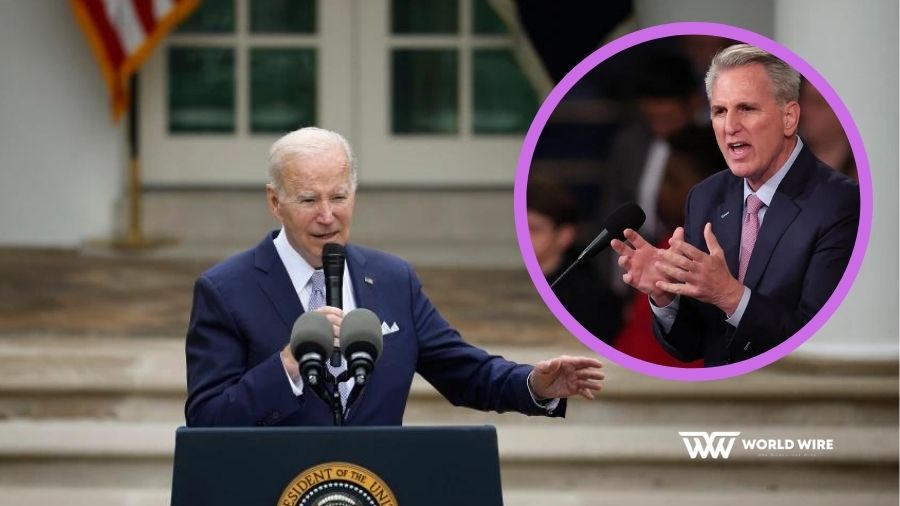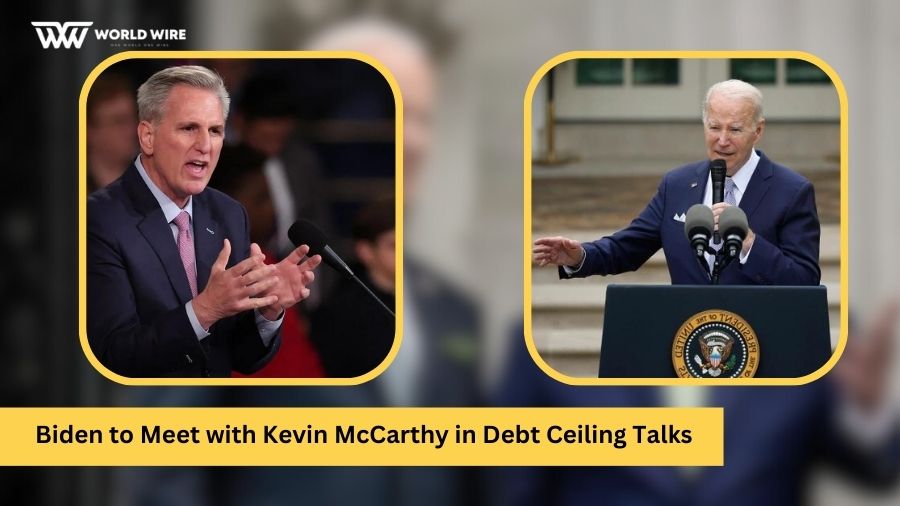President Biden will host Speaker Kevin McCarthy and other key congressional leaders at the White House on Tuesday to discuss the nation’s taxes, spending, and debt as a potentially disastrous government default approaches.
The talk is taking place beforehand as the United States is predicted to run out of money to pay its debts if the country’s borrowing limit is not increased.
The conversations resemble the brinkmanship of 2011 and 2013 when congressional Republicans refused to increase the debt ceiling unless a Democratic president agreed to curb federal spending and reduce budget deficits.

A similar dynamic is at work right now, with one significant difference. The parties have yet to agree on tax and spending plans to slow the country’s $31.4 trillion debt development.
The discussion is not anticipated to have any result that comes close to a final agreement on a fiscal strategy that would involve lifting the debt cap. Even minor issues could be challenging to reach an agreement.
By primarily increasing taxes on the wealthy and big businesses, Biden hopes to increase federal spending while lowering future debt. Republicans have adopted a plan to reduce government discretionary spending, which covers things like national parks and education, and to abolish tax advantages for some low-emission energy sources that were a component of Biden’s signature climate law. Republicans have pledged to extend President Donald J. Trump’s 2017 tax cuts, which are set to terminate at the end of 2025.
Although both parties claim to desire to lower the nation’s future debt burden, there is hardly any overlap in how they plan to get there. Mr. Biden and Mr. McCarthy agreed only on Social Security and Medicare, which are expected to be the primary factors of future federal spending growth. It must be discussed outside of budget negotiations.
Discussions about the debt limit, which the government legally reached earlier this year, are complicated by several variables, including the gap in fiscal issues. Officials have been using effective accounting tricks to continue paying the government’s obligations on schedule without exceeding the current $31.4 trillion cap.
However, Janet L. Yellen, the Treasury secretary, said in a letter last week that these measures won’t be viable starting on June 1, putting the country at risk of a debt default that economists fear might trigger a financial catastrophe and recession.
Joe Biden has declined to engage in direct negotiations over the limit while insisting that Republicans must vote to raise it unconditionally, given that it only permits the government to pay for spending that both party lawmakers have already approved. Nevertheless, he extended an invitation to Mr. McCarthy and other congressional leaders for a meeting at the White House on Tuesday to discuss what he calls fiscal strategy.
Enter your email to stay updated with offers
If you can’t see the form above, click here to open the form.







Add Comment